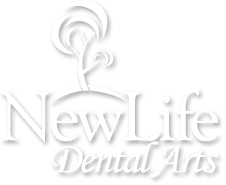Have you ever considered how your oral health could be affecting your sleep? While brushing and flossing are part of a good oral hygiene routine, there’s more to the story. Your teeth and gums can have a surprising impact on how well you snooze each night.
The Connection Between Oral Health and Sleep
Oral health issues can significantly impact the quality of your sleep. Problems such as sleep apnea and snoring often arise from dental-related concerns. Sleep apnea occurs when there’s obstruction in the airways during sleep, which can be linked to oral factors like the position of your tongue or crowded teeth. Snoring, while common, may also stem from airflow restrictions caused by oral structures.
These sleeping disruptions lead to poor sleep quality, resulting in tiredness during the day and affecting overall health. It’s important to recognize the signs that dental issues might be disturbing your sleep. Watch for symptoms like frequent morning headaches, which can signal tension from teeth grinding or inadequate airflow. A dry mouth upon waking is also a clue that breathing issues, like open-mouth breathing due to congestion or soft palate collapse, might be at play.
Understanding how these oral health issues influence sleep invites a closer look at maintaining a healthy mouth. By addressing these concerns with your dentist, you can improve your sleep quality, leading to better energy levels, concentration, and mood throughout the day.
How Oral Health Affects Breathing During Sleep
Breathing difficulties during sleep often have roots in oral health challenges. Here are some dental issues that can lead to nighttime breathing problems:
- Jaw Alignment: Misalignment, such as an overbite or underbite, can restrict airflow by altering the natural position of the jaw and tongue during sleep.
- Bite Issues: Crowded teeth or a misfitting bite can create discomfort and tension, leading to habits like teeth grinding, which further compromise airway space.
- Oral Tissue Health: Enlarged tonsils, adenoids, or excess tissue in the throat can obstruct airflow, making breathing hard and interrupting restful sleep.
The alignment of your jaw and teeth greatly influences sleep quality. A misaligned jaw can push the tongue backward, blocking the airway and causing loud snoring or apnea episodes. For children, issues like thumbsucking or prolonged use of pacifiers may impact bite development, leading to similar breathing problems.
Healthy oral tissues also play a vital role in keeping airways open. Ensuring clear nasal passages and a healthy soft palate is essential, as both aid smooth airflow. Regular dental check-ups can help monitor these aspects, ensuring that oral health supports the best possible sleep. Understanding these connections empowers you to take actionable steps to improve sleep both in yourself and your loved ones.
Improving Sleep Through Better Oral Care
Taking care of your teeth and gums can lead to better sleep and improve your general well-being. Maintaining oral hygiene prevents many issues that disrupt a restful night. Here are some effective tips for enhancing your dental routine to support quality sleep:
- Brush and Floss Daily: Brushing at least twice a day and flossing daily remove plaque, reducing the risk of gum disease and tooth decay that can lead to discomfort at night.
- Use a Mouth Guard: If you grind your teeth at night, a mouth guard can help protect your teeth and ease associated tension that affects sleep quality.
- Stay Hydrated: A dry mouth can lead to discomfort and poor sleep. Drinking plenty of water helps keep your mouth moist and healthy.
Regular dental visits are crucial for assessing how oral health could be affecting your sleep. Your dentist can identify potential problems such as misaligned jaws or any soft tissue issues that might be obstructing your airways during sleep. By catching these early, you can take the necessary steps to keep your mouth healthy and enjoy better rest.
Dental Treatments to Support Better Sleep
When sleep is frequently interrupted by oral health issues, dental treatments might be the solution you need. There are several effective treatments available designed to reduce snoring and improve sleep apnea symptoms. Here’s how these treatments can help:
- Oral Appliances: Devices such as mandibular advancement devices (MADs) help reposition the jaw to keep airways open. Custom-fitted by your dentist, these appliances are comfortable and effective for reducing snoring.
- Jaw Adjustment Therapy: This involves therapies or exercises recommended by your dentist to correct jaw alignment, assisting in improving airflow and reducing nightly disturbances.
The expertise of a professional dentist is vital in guiding you toward the right treatment. They take into account your specific needs and the structure of your mouth to tailor the best approach. With the right guidance, you can turn the corner toward better sleep and improved health.
Conclusion
Understanding the link between oral health and sleep opens doors to enhancing both your dental and overall well-being. Addressing oral hygiene with care impacts not just your night’s rest but also your daily energy and comfort. Embracing a proactive approach to dental care can set the stage for improvements you might not have previously thought possible.
Taking charge of your oral health with the support of dental professionals can transform your sleep quality. At New Life Dental Arts, we’re here to guide you through and improve these connections. Reach out to us to explore how we can help enhance your dental health and your restful nights.

